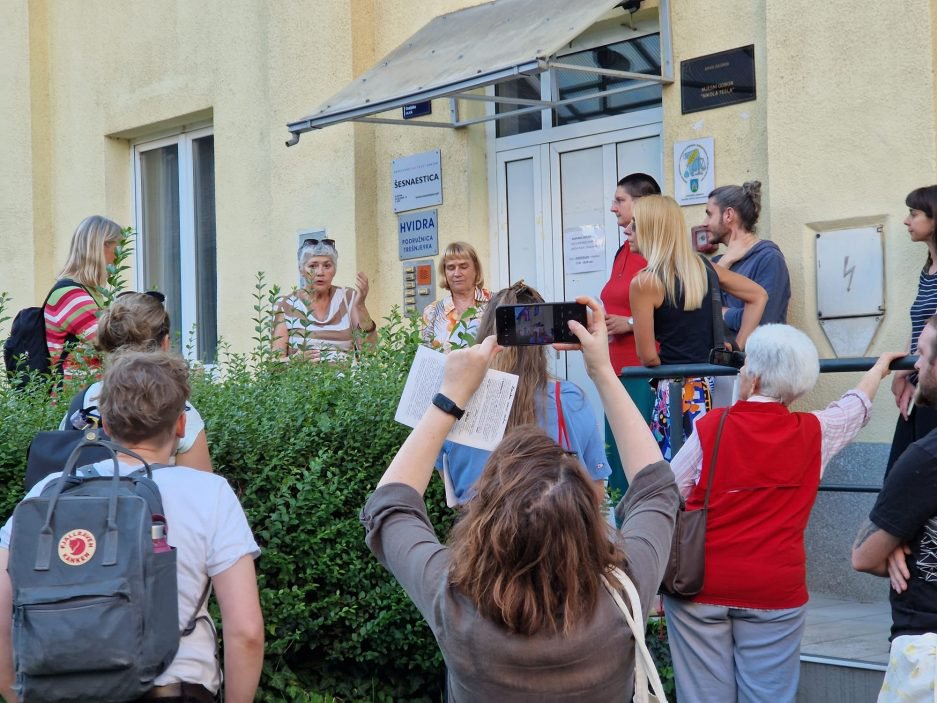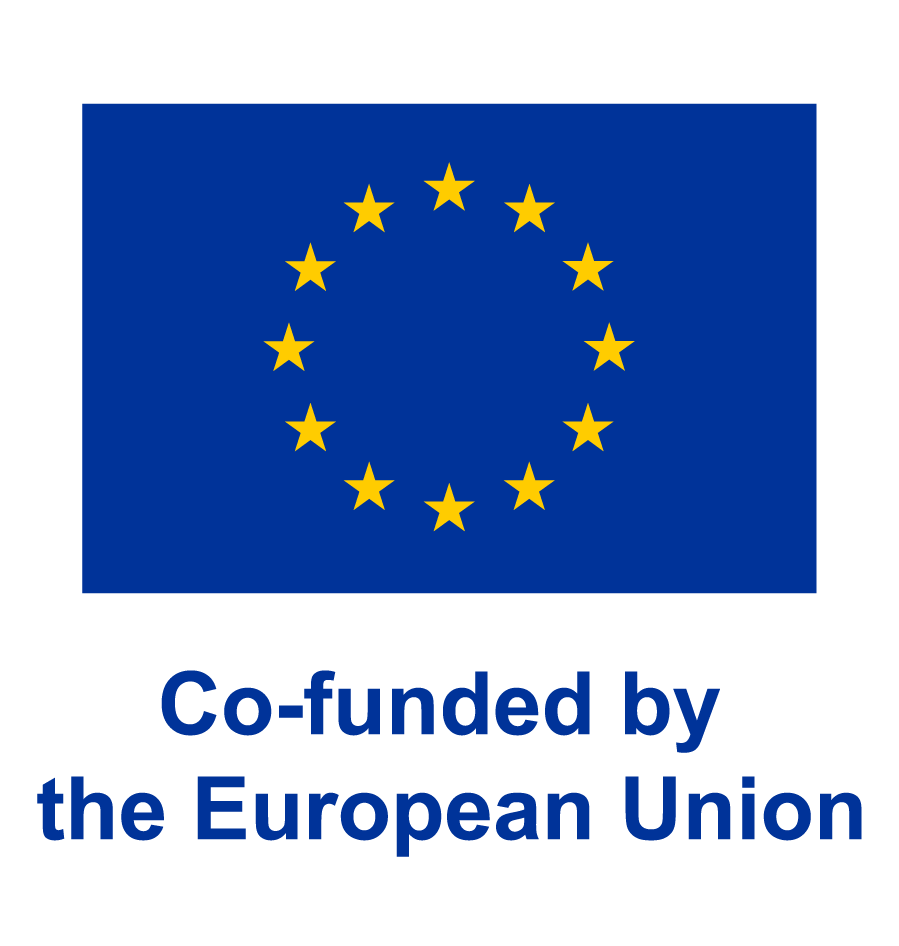The educational walk "Trešnjevka: an area symbolic of protection of women's and human rights" was held in Zagreb

On July 4, 2024, Documenta organized the educational walk "Trešnjevka: an area symbolic of protection of women's and human rights" to mark the 33rd anniversary of the launch of the Antiwar Campaign of Croatia.
The walk began in front of the House of Human Rights with opening remarks by Vesna Teršelič, co-founder of the Antiwar Campaign and head of Documenta. Vesna Teršelič referred to the launch of the Antiwar Campaign, which over the years has developed into a network of human rights, peace and anti-war initiatives, organizations and activists.
By gathering in front of the House of Human Rights, we looked at the organizations that operate in the premises of the House today and are engaged in the protection and promotion of women's and human rights - B.a.B.e.- Budi aktivna. Budi emancipiran, Center for Peace Studies, CROSOL - Platform for International Civic Solidarity of Croatia, Documenta - Center for Dealing the Past, Association for the Promotion of Mental Health Svitanje and Croatian Youth Network.
During the walk we recalled the history of the women's movement in the 1980s and 1990s with the testimonies of Slavica Jakobović Fribec, an active associate of the "Women's Group Trešnjevka" and "Women's Help Now" and Nevenka Fiket, co-founder of the first SOS phone for women victims of violence. At the Ozaljska 16 location, where the social and cultural center "Šesnaestica" is located today, we connected the past and present of Trešnjevka as a space for the protection of women's rights.
Slavica Jakobović Fribec recalled the beginning of the "Trešnjevka Women's Group". The group was founded in 1986 and received space for use from the Croatian Socialist Youth Association in what was then Končareva Street, now Ozaljska. Members of the group organized panels where violence against women, reproductive rights, feminism and sexuality were discussed and debated. The female associates of the group also explored these topics through artistic practices.
Slavica Jakobović Fribec also talked about the organization of the First Croatian Women's Parliament (1990), from which amendments to the new Constitution of the Republic of Croatia were sent to the Croatian Parliament, and the Declaration on Women's Reproductive Rights was sent to the public.
The first SOS telephone for women and children victims of violence (1988) and the organization "Women's Help Now" (1989) later developed from the "Trešnjevka Women's Group". Nevenka Fiket, who has worked for the SOS telephone for 35 years, talked about how in the late 1980s, through the operation of the telephone, society began to face the prevalence and severity of domestic violence, the victims of which are mostly women and children.
The event is a part of the project “Female perspectives on the democratic transitions in the 1970s, 1980s and 1990s”.
The project is co-financed by the European Union.

